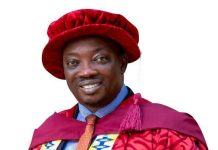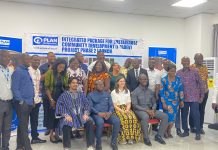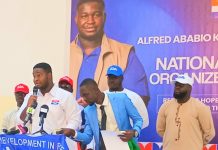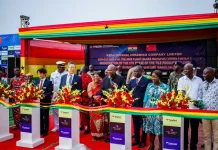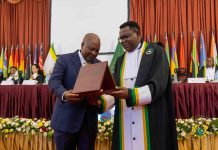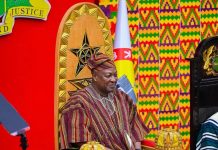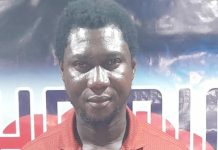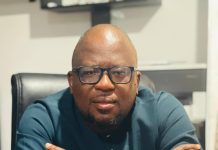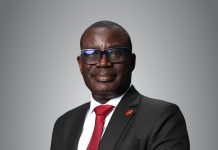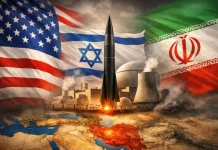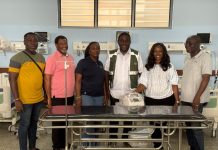On September 18th, the 8th Anniversary of the September 18th HWPL World Peace Summit was held online with the theme of “Peace as an Institution: A Foundation for Sustainable Development.”
This event was held across the world in 146 countries including Ghana, Nigeria, the USA, Germany, and South Korea, with 5,000 participants aired online to reaffirm the importance of the sustainable development guaranteed by institutionalizing peace while the global community has yet to overcome the COVID-19 pandemic and faces another threat caused by the Russian-Ukraine conflict.
Since September 18th in 2014 when the peace summit was held for the first time, Heavenly Culture, World Peace, Restoration of Light (HWPL), an international peace NGO under the UN ECOSOC, has called for solidarity for peacebuilding at the global level through collective actions with various actors including heads of state, ministers, lawmakers, religious leaders, educators, youth and women leaders, and reporters.
This annual summit shares peace activities and achievements in cooperation with governments and civil society around the world every year.
Regarding the cause of peacebuilding at the global level, Chairman Man Hee Lee of HWPL said, “The global village has suffered from the unexpected COVID-19 that has hit every country. People are not alone in the midst of difficulties.
We live in the same global village, and we are neighbors and families. Each one of us is the one who are obliged to make our world a better place to live. And shouldn’t we pass on our good world to our descendants?”
H.E. Marinus Bee, the chairperson of the National Assembly of Suriname, expressed his willingness to establish peace at the legislative level by saying, “The role of parliaments in building peace and preventing conflict is crucial.”
He added, “In collaboration with HWPL the National Assembly would like to establish a framework of cooperation in achieving cessation of war and spread a culture of peace through activities to raise awareness of peace and encourage policies and programs regarding peace education.”
Octavia Alfred, Octavia Alfred, Minister for Education, Human Resource Planning, Vocational Training and Nation Excellence of Dominica, said that “HWPL’s peace education was introduced to the national school curriculum in Dominica as it was integrated into Social Studies, and also as a stand-alone.”
For the reason to develop the educational source into the civics curriculum in the country, she said that “the HWPL peace curriculum is helpful in addressing the challenges of not just students, but even what they take home to their friends and their parents, and also out teachers.”
Mahendra Das, the Temple President of Sri Sri Radha Madhava Mandir of the Philippines, presented an institutional approach to interreligious dialogue in terms of the role of religion in contributing to peace.
He suggested that regularizing international exchanges and programs to prevent conflicts based on religious misunderstanding can be a starting point for a foundation of peace.
Mr. Chung Young-min, General Director of the IPYG emphasized the role of youth as the main player of international action for peace by saying that education programs for 1,500 global youth in 59 countries are hosted to “protect the basic rights of youth around the world so that everyone can live a happy life without being left behind.”
Details of the event can be viewed through the following YouTube link.

